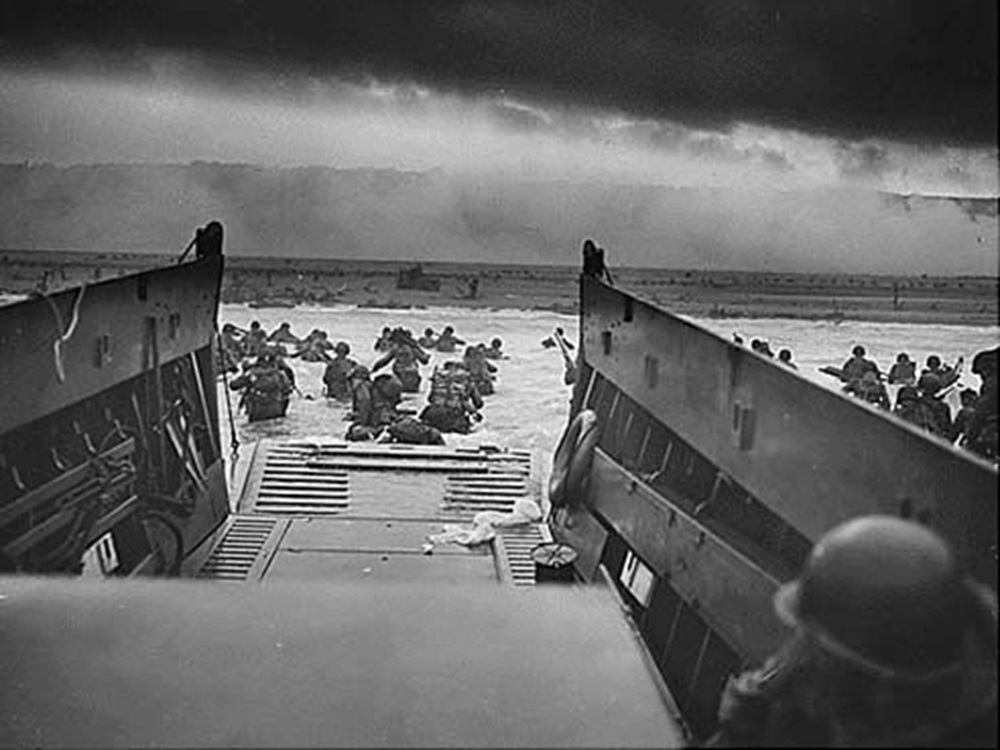Bangor scientist tells story of unsung D-Day landing heroes

A Bangor University professor has made a BBC documentary highlighting the contribution an unusual area of science played in ensuring the success of the D-Day landings.
Ahead of events to mark the 80th anniversary of the Allied invasion of mainland Europe in the Second World War, research has brought to light the importance of a group of commandos with a unique skill set.
Christian Dunn, who is a professor of wetland science at Bangor University, has written about the subject and made a documentary for BBC Radio 4 telling their story.
Geological maps
“Before the D-Day landings on 6 June 1944, a lot of work had been done to select the beaches the Allies would land on – eventually the Normandy coast was chosen,” Professor Dunn said.
“However, the French Resistance are believed to have smuggled out some geological maps of the area – one of them dating back to the Roman Empire – which suggested there was soft clay and peat under the sand of the beaches.
“Peat is a type of wetland sediment created over millennia, which can be very unstable.
“The Allied scientists and planners needed to find out where these clay and peat deposits were along the beaches so they didn’t land on them on D-Day,” he added.
As the aerial photographs weren’t accurate enough, a group of commandos were given training in wetland and soil science, and then had to swim to the beaches, from small boats or submarines, to collect sediment samples, in the months before the landing.
“I find the bravery of these men incredible, but for me there’s an emotional attachment with the story as they were collecting samples in pretty much the same way as I do now – though fortunately, I’m not usually risking being tortured and shot when I do so,” Professor Dunn said.

Recording the documentary took Professor Dunn over to the Normandy landing beaches, where he re-enacted one of the swims the commandos did and collected samples in the same way, using kit specially made by soil testing equipment manufacturers Royal Eijkelkamp for the programme.
“I’m a wetland scientist, and spend a lot of my time wading around in mud in my wellies, but to think my area of science helped ensure the success of the climactic battle of WWII, is rather sobering,” Professor Dunn added.
Characters
BBC audio science producer, Harry Lewis, said, “When we started discussing this idea with Christian, we knew we had to make a documentary about it – it is such a fascinating story with so many characters and tales to tell: we could have made an entire series about it.
“Working with Christian was a brilliant experience, he’s so incredibly passionate about science and history he makes the story come alive – to be honest, I never thought anyone could make mud so interesting!”
The programme, called The Beaches, will be broadcast on BBC Radio 4 at 1:30pm on Sunday, 2 June and repeated at 4:00pm on Monday, 3 June, before being available on BBC iPlayer.
Support our Nation today
For the price of a cup of coffee a month you can help us create an independent, not-for-profit, national news service for the people of Wales, by the people of Wales.






C.O.P.P. Combined Ops Assault Pilotage Parties…if anyone is interested a good google…
All that sacrifice, then to blow it with Brexit…
The OS publish one, have it somewhere. See Tacitus and Caesar’s writings on Gaul for inspiration…
I have never heard of a Roman map either. I am familiar with the Antonine Itinerary. The OS version is .modern.